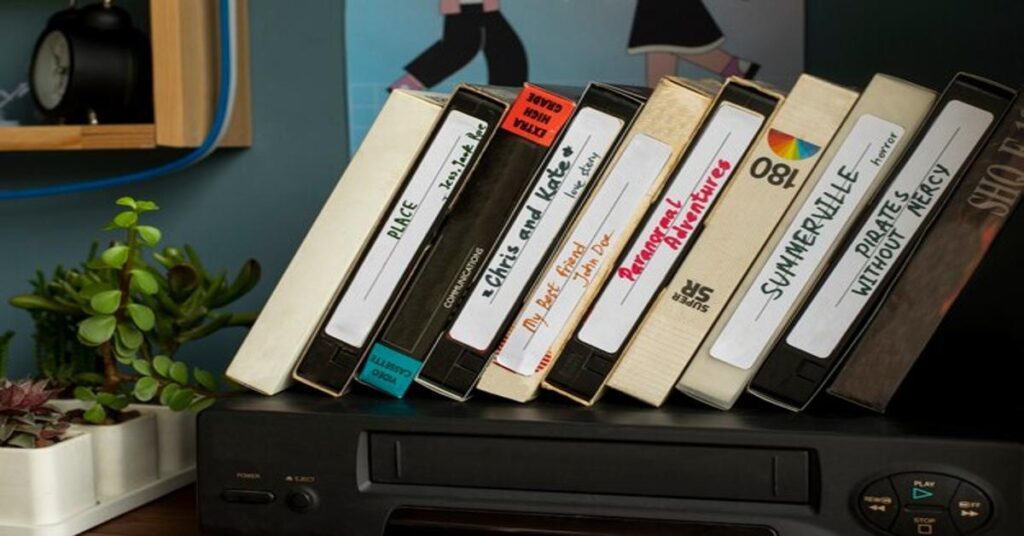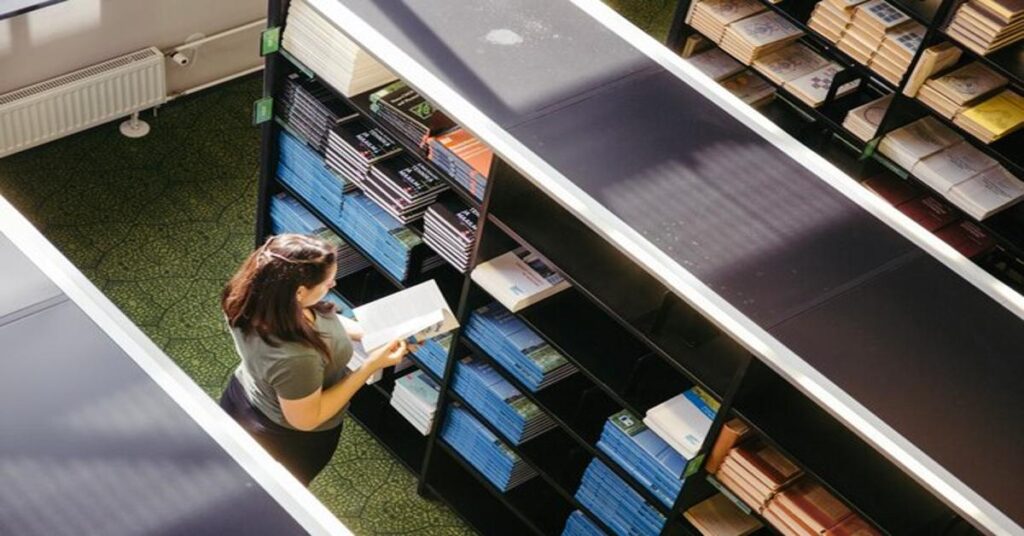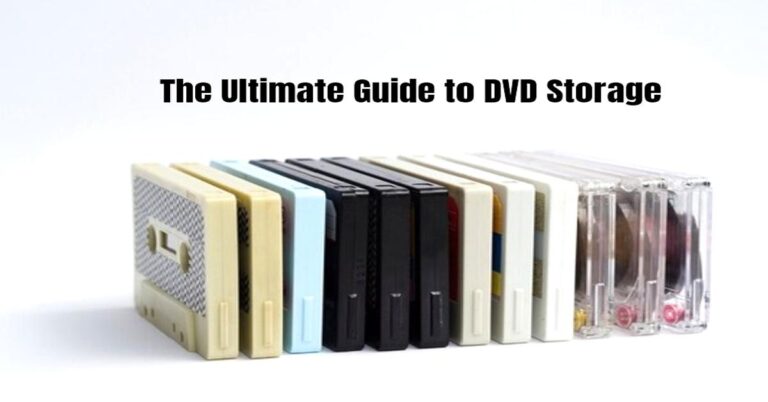In a world moving rapidly toward streaming and digital media, physical DVDs may seem like a thing of the past. Yet, many of us still treasure our DVD collections—whether it’s for the nostalgia, the exclusive content, or the simple joy of owning something tangible. But how do you store DVDs effectively so they’re organized, accessible, and protected for the long term? This guide will walk you through everything you need to know about DVD storage, with practical tips, creative ideas, and advice on preserving your collection for years to come.
Why Proper DVD Storage is Important
Did you know that DVDs can degrade if not stored correctly? Here’s why proper storage matters:
- Longevity: DVDs can last for decades, even up to 100 years, if stored under the right conditions.
- Ease of Access: An organized system means no more time spent hunting for that one movie.
- Value Preservation: Some DVDs, especially collector’s editions or rare releases, can retain or even gain value over time.
So whether you’re an occasional movie fan or a serious collector, organizing your DVDs the right way makes a difference.
Types of DVD Storage Solutions at a Glance
Here’s a quick comparison of common DVD storage solutions to help you get a sense of what might work best for your collection.
| Storage Solution | Best For | Capacity | Space Needed |
|---|---|---|---|
| Binders | Small to medium collections | High (up to 400 DVDs per binder) | Minimal |
| Shelves | Large collections | Unlimited | Wall/floor space |
| Cabinets | Medium to large collections | High | Moderate space |
| Digital Cataloging | All sizes | Unlimited (digital catalog only) | Minimal space |
These solutions vary widely, from compact binders to dedicated shelving units, giving you flexibility based on your space and collection size.
Choosing the Right DVD Storage Solution for You
Picking a storage solution comes down to understanding what you need. Here’s how to make that decision easier:
- For Small Collections: Consider DVD binders. These offer a compact, affordable option for storing dozens or even hundreds of DVDs without taking up much space. Binders are also portable, so they’re great if you’re short on storage room.
- For Medium to Large Collections: Shelves or cabinets work well for larger collections, as they allow you to display and access DVDs easily. Shelving gives you the flexibility to organize by genre, alphabet, or any other system you prefer.
- For Collectibles or Rare DVDs: If you have rare DVDs or items with sentimental value, look into protective cases or a dedicated, climate-controlled area. Proper storage conditions are key to preserving disc quality over time.
Tip: Always think about potential growth. If you plan to keep adding to your collection, choose a storage solution that can expand with you.
Creative and DIY DVD Storage Ideas
If you want a unique, budget-friendly approach to DVD storage, here are a few creative solutions to consider:
- Repurposed Crates: Stack wooden crates on their sides for a rustic, open-shelf effect that doubles as both storage and decor.
- Good for: Those who love a DIY aesthetic.
- Bonus: Crates are versatile and can be arranged vertically or horizontally.
- Hanging Organizers: Fabric organizers meant for shoes can double as DVD holders, saving floor space and keeping your collection accessible.
- Good for: People with limited floor space or those looking to hide DVDs out of sight.
- Tip: This works well for small collections or for organizing DVDs you don’t access daily.
- Repurposed Bookshelves: A sturdy bookshelf can be a perfect fit for DVDs, especially if you already have one.
- Good for: Medium to large collections where visibility and access are priorities.
- Customization Idea: Consider labeling sections by genre for easy browsing.
- Labeling and Sorting: If you prefer a more hands-on, organizational approach, consider labeling your DVDs with small stickers to indicate genre, release year, or even favorites.
DIY projects add personality and functionality to your storage. Plus, they’re often inexpensive and can be tailored to your exact needs.
Tips for Long-Term Storage and DVD Preservation
DVDs are durable, but they still require proper care to maintain quality. Here are some essential storage tips:
- Control Temperature and Humidity: DVDs are sensitive to environmental factors, so avoid storing them in places with fluctuating temperatures (like attics or basements). Keep them in a cool, dry location.
- Minimize Exposure to Light: Prolonged sunlight exposure can fade DVD labels and degrade the disc material over time. Store them in a shaded area or within a closed storage solution.
- Handle with Care: Always hold DVDs by the edges to avoid scratches. Clean them with a soft cloth, wiping from the center outward, to prevent scratches.
With a little care, your DVDs can last for many years, maintaining their quality and value.
Product Overview: Understanding Storage Options

Rather than recommending specific products, let’s look at the different types of storage options available and what to look for:
- Binders: Great for space-saving, binders can hold hundreds of DVDs in a compact, portable format. Look for binders with padded sleeves to protect the discs.
- Shelving Units: Adjustable shelves offer flexibility in arrangement. Look for sturdy, stable units, especially if you plan to store a large number of DVDs.
- Cabinets with Doors: Closed cabinets protect DVDs from dust and light exposure. These are a good option if you want to keep your collection hidden from view.
Each of these storage types can be found in a range of materials, from wood and metal to fabric and plastic, so choose one that matches your space and budget.
Organizing Your DVDs: Tips for Cataloging and Sorting

Once you’ve chosen a storage solution, organizing your DVDs makes all the difference in usability. Here are some effective strategies:
- Digital Cataloging: Apps like My Movies or Collectorz.com allow you to digitally catalog your DVDs. This is especially helpful for large collections, as you can search and sort your collection without handling physical discs.
- Labeling and Grouping: Label DVDs by genre, director, or alphabetically for easy access. For large collections, consider breaking down sections further, such as by decade or region.
- Display Frequently Watched DVDs Separately: If you have favorites that you watch often, keep them on a lower, easily reachable shelf or in a separate binder for convenience.
Organizing your DVDs thoughtfully makes accessing your favorite movies quicker and helps keep the collection in good shape.
Common DVD Storage Mistakes to Avoid

Here are some common storage mistakes and how to avoid them:
- Stacking DVDs Flat: Storing DVDs horizontally can cause warping over time. Always store them vertically to prevent pressure damage.
- Storing in Damp Locations: Basements or garages often have high humidity, which can damage DVDs over time. Aim for a dry location with consistent conditions.
- Overloading Shelves: Avoid crowding shelves to the point where DVDs are difficult to remove. Leave a bit of space so that discs aren’t rubbing against one another.
Avoiding these pitfalls can make a big difference in the lifespan of your collection.
Real-Life Inspiration: How Collectors Organize Their DVDs
Sometimes, the best ideas come from real-life experiences. Here are a few examples from DVD collectors:
- Minimalist Approach: One collector downsized by switching to slim cases, freeing up an entire shelf while still displaying all his favorites.
- Genre-Based Arrangement: Another collector organized her DVDs by genre, placing thrillers, comedies, and dramas on different shelves. This setup makes browsing her collection easier and adds a touch of personality.
These stories highlight how different approaches to DVD storage can be customized based on needs and space.
Conclusion and Final Tips
Proper DVD storage isn’t just about keeping things organized; it’s about preserving your collection and making it easy to enjoy. By choosing a storage method that suits your space and organizing thoughtfully, you can keep your DVDs accessible, safe, and ready to watch at any time.
Next Steps: Consider trying one of the storage solutions or organization tips we’ve covered. Have a unique storage setup or organization method? Share it with us in the comments!

